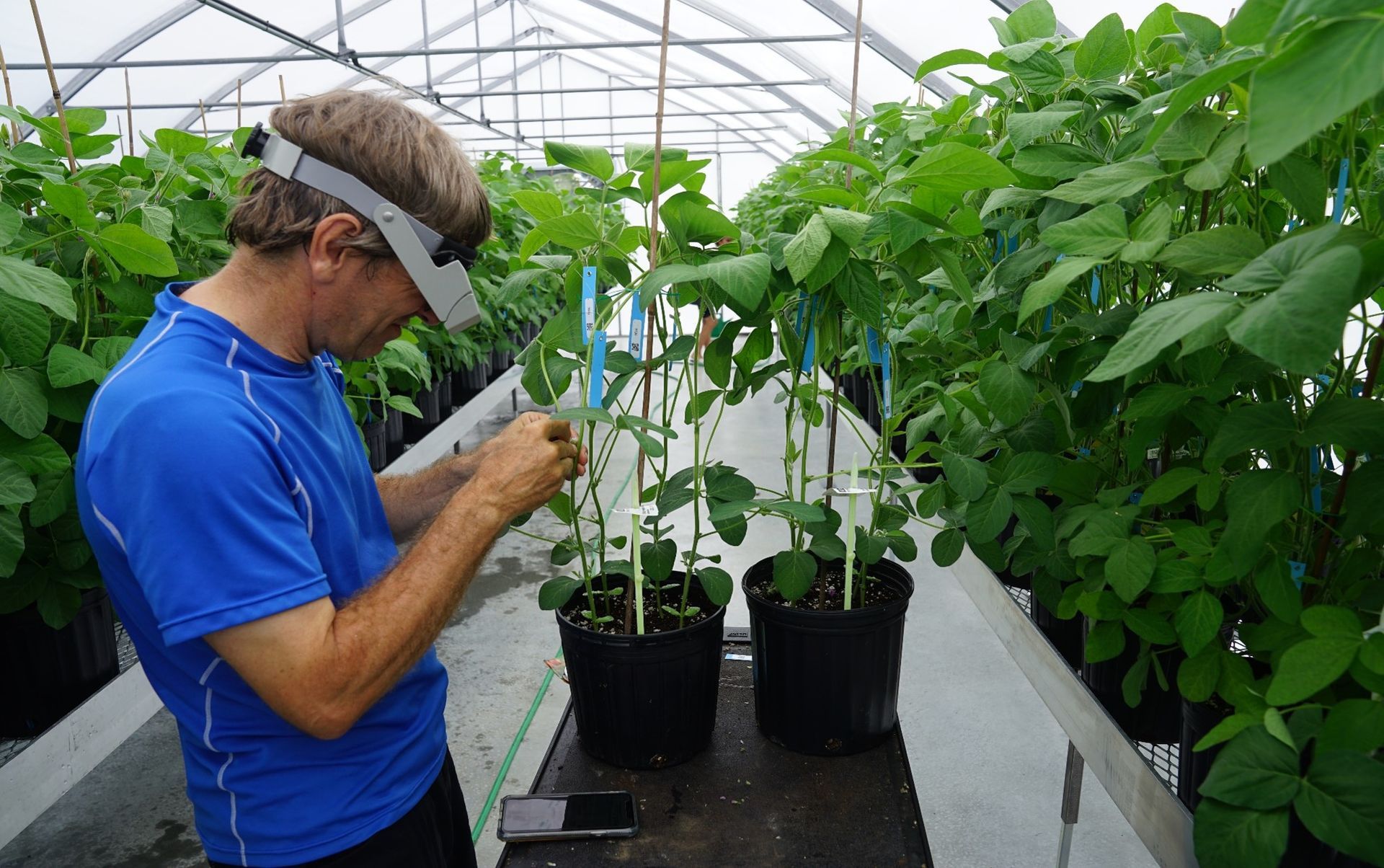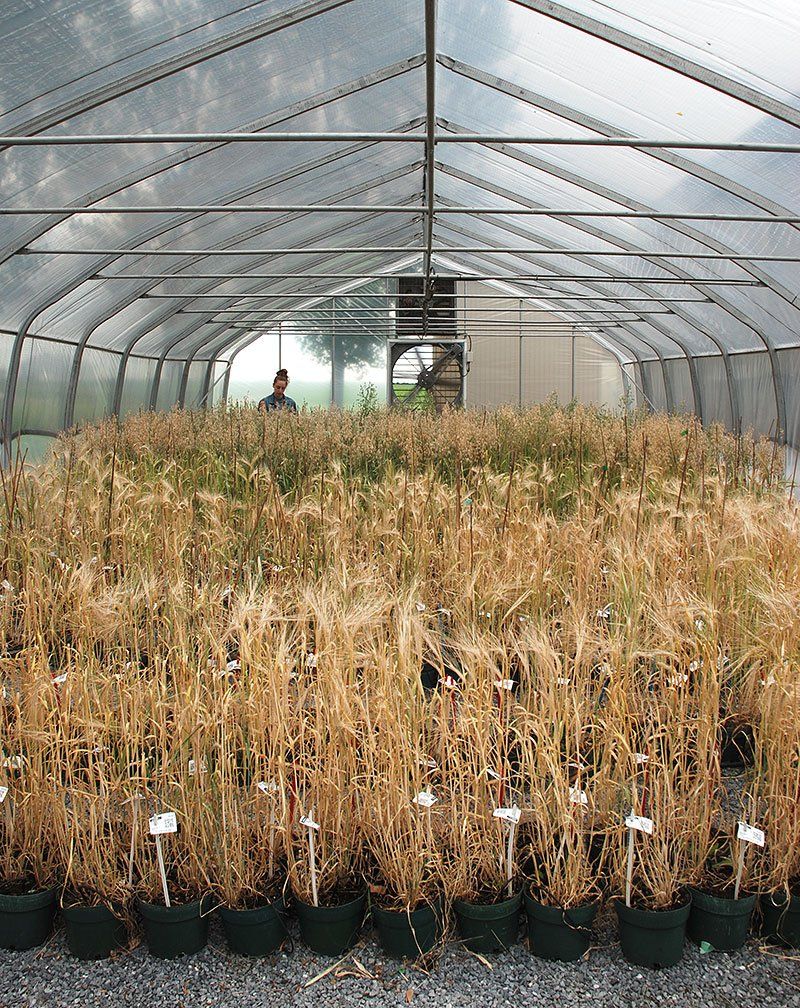NEW CULTIVARS
Creating a new seed variety takes approximately 10-12 years of painstaking work.
Wheat, barley, oats and soybeans are self-fertilized species that require four to five years of self-fertilization following a cross between two lines allowing genetic traits to be fixed. Subsequently, the agronomic, pathological and nutritional assessments of genetic material begin. In our laboratory and research farms, our team of genetic experts strive to find the best possible combinations in order to create high-performance, disease-resistant varieties that have the desired nutritional qualities and the capabilities to adapt to different climates.
One of the many goals currently in our wheat and barley breeding programs is to improve resistance to Fusarium Head Blight (FHB). This disease is very present in Quebec and around the world. It causes significant economic losses for all stakeholders in the sector. More than 1000 plots are tested annually inside our artificial inoculation nursery to identify the most resistant cultivars. Our laboratory now allows us to produce our own fusarium inoculant in addition to being able to measure the amounts of DON (toxin produced by the fusariasis fungus) on all of our lines tested.
It is important to note that all varieties created at our research centre are free of genetically modified organisms (GMOs). Crossbreeding methods between two individuals are the source of the creation of brand new varieties. It is therefore a very natural principle, the basis of all genetic evolution that has been occurring autonomously for thousands of years. Because wheat, barley, oats and soybeans are self-fertilized, these natural crosses are rather rare in the environment for these species. We therefore manually reproduce this method within our greenhouses, taking care to target the individuals we wish to cross with each other.
The creation of new varieties is a long-term process that requires patience and scientific rigour. Our team is ready to face these challenges head-on in order to develop the best high-performing varieties.
Importance of genetic gain:
Due to changing and competitive markets, climate change and the arrival of new pathogens, farmers must continually adapt and sow the best cultivars adapted to the ever changing agricultural conditions. That is where we come in. The goal of our breeding programs is to create new and more efficient varieties by meeting the stringent requirements of farmers and processors. We always maintain a natural approach without resorting to genetically modified organisms.
Thanks to our laboratory and to our two evaluation sites, one in St-Hugues in Montérégie and the other in Causapscal in Eastern Quebec, we are well equipped to carry out all the steps required in creating new varieties. More than 40,000 research plots are seeded annually, phenotyped and analyzed in order to identify the best performing lines that will make their way to the market. The new products are offered to distributors who ensure seed multiplication and marketing to growers. With a strong presence in Quebec, Ontario and the Maritimes, we also maintain business and research relationships with companies around the world.
1133, 4e
RangSaint-Hugues, QuébecCanada J0H 1N0
450 894-2358
Contactez-nous
Merci de nous avoir contactés.
Nous reviendrons vers vous dès que possible.
Nous reviendrons vers vous dès que possible.
Oups ! Une erreur s'est produite lors de l'envoi de votre message.
Veuillez réessayer plus tard.
Veuillez réessayer plus tard.
1133, 4e
RangSaint-Hugues, QuébecCanada J0H 1N0
450 894-2358
Contactez-nous
Merci de nous avoir contactés.
Nous reviendrons vers vous dès que possible.
Nous reviendrons vers vous dès que possible.
Oups ! Une erreur s'est produite lors de l'envoi de votre message.
Veuillez réessayer plus tard.
Veuillez réessayer plus tard.
1133, 4e
RangSaint-Hugues, QuébecCanada J0H 1N0
450 894-2358
Contactez-nous
Merci de nous avoir contactés.
Nous reviendrons vers vous dès que possible.
Nous reviendrons vers vous dès que possible.
Oups ! Une erreur s'est produite lors de l'envoi de votre message.
Veuillez réessayer plus tard.
Veuillez réessayer plus tard.






